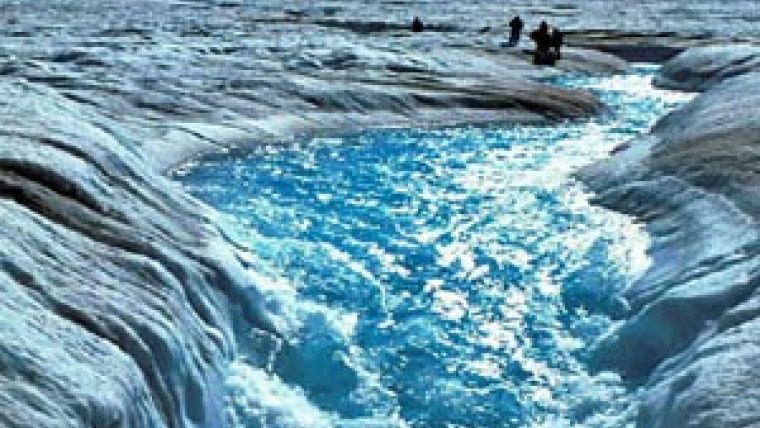Greenland's Ice Melting: 50-year Atlantic Wave
A number of climate models predict that global sea levels could rise more than a metre if the Greenland ice cap melts. Many urban and economic centres around the world would be at risk, and several low lying Pacific Islands could disappear underwater. A twist to the story has been uncovered, one which should alarm western nations bordering the Atlantic Ocean.
The New Scientist (12th July 2008) reports on the work of a research group at the University of Hamburg in Germany. They have constructed a computer model which analyses the detail of huge amounts of meltwater from the Greenland Ice cap being dumped into the Atlantic Ocean. Ironically the results indicate that the low lying Pacific Islands might be among the last to be affected.
The model predicts that the majority of Greenlands' meltwater will stay in the Atlantic Ocean for at least 50 years. Currents will eventually carry the water to the tip of Africa whereupon it will spill across into the Indian Ocean and finally the Pacific Ocean some 30 years later. In the medium term the consequences are most severe for the North Atlantic, where sea level rise along the east coast of North America would be 30 times as great as in the Pacific Ocean. In Europe the rise is predicted to be about six times that of the Pacific. The one piece of good news is that the same researchers believe that Antarctic meltwater could be prevented from reaching much of the world for hundreds of years due to the strong southern ocean current. Some small comfort perhaps.














